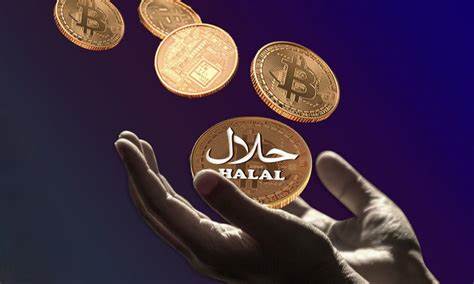
For Halal crypto: As cryptocurrencies and blockchain technology increasingly gain worldwide popularity, numerous Muslims are looking for ways to be a part of this innovation without compromising their religion. While the crypto world is full of promise, it is also full of hype, speculation, and uncertainty. Therefore, it is important to know how to spot halal crypto projects that are aligned with Islamic values and financial ethics before investing your hard-earned cash.
This guidebook walks you through step-by-step practical steps to assess whether a crypto project is halal, with a highlight on transparency, justice, and the absence of prohibited elements like gambling, excessive risk, or interest.
Table of Contents
1. Understand the Project’s Core Purpose
The first step to deciding on a halal crypto project is to learn why it was made.
Halal investments must serve a moral intention. The project must be productive and beneficial, such as:
- Improving financial inclusivity
- Improving transparency with decentralized systems
- Improving supply chain accountability
- Building effective payment systems without relying on interest-based systems
Avoid projects without any real use-case or for speculative trading only. If the only reason for the project is to gain profit from price variation of tokens without contributing to society, it can fall under suspicious or impermissible areas.
2. Evaluate the Whitepaper for Compliance For halal CRYPTO
A whitepaper is a technical document that outlines the mission, mechanics, and goals of the project. In order for a project to be halal, its whitepaper should show:
- Transparency of how the project works
- Fairness in token distribution
- Clear value proposition that addresses a genuine use case in the real world
- Absence of prohibited elements like interest (riba), gambling (maysir), and uncertainty (gharar)
Pay attention to whether the project entails lending, margin trading, or other interest-based financial instruments. Also, if the project is promoting luck-based games or lotteries, it could entail gambling, which is clearly haram.
3. Examine the Team Behind the Project
Halal investment also involves trusting the individuals responsible for overseeing the project. A halal crypto project needs to be backed up by a team that is:
- Publicly identifiable (no anonymity)
- Open about their qualifications and their backgrounds
- Known for ethical behavior in past projects
If a project covers up the identities of its founders or developers, or if they have a history of being involved in questionable projects in the past, one would be wise to steer clear. The commitment of the team to Islamic financial principles or even moral responsibility is a positive indication of the project’s compliance with halal standards.
4. Review the Tokenomics
Tokenomics is the way that the project token is constructed and distributed. Halal crypto projects don’t involve manipulation, hoarding, or unfair early access.
Ensure that the token:
- Is put to real use (used for governance, access, or services)
- Is distributed uniformly without excessive concentration among developers
- Avoids artificial inflation or deflation to influence prices
Tokens issued primarily to generate short-term gains for insiders or lack genuine utility in the ecosystem are doubtful. Halal investing favors projects that promote justice, fairness, and contribution to the economy rather than exploitation or hoarding.
Read More: How to Trade Crypto as a Muslim: HAlal Tips for Beginners
5. Avoid Interest-Based Financial Models
Islamic finance prohibits riba (interest) strictly. Therefore, you should not employ any project using staking, lending, or borrowing models that have similarities to interest accumulation.
Be cautious of platforms offering:
- Fixed returns on staking
- Passive income on lending
- Lending pools with guaranteed profits
Although these returns are attractive, they may not be in line with halal finance. If profit is guaranteed regardless of business outcomes, it may be riba, which is strictly prohibited.
Instead, look for models of partnerships (Musharakah) or profit-sharing (Mudarabah) where risks and benefits are shared fairly.
6. Stay Away from Gambling-Based or Speculative Projects
Many crypto platforms and projects are designed to mimic gambling through high-risk activities like:
- Hype-only meme coins
- Lottery-giveaway gimmicks
- Play-to-earn systems based on luck and random returns
- Margin or leveraged trading with erratic volatility
These models promote speculation (gharar) and games of chance (maysir), both of which are firmly haram.
Halal investment requires that you be involved in ventures whose risks are distributed fairly and whose results are a function of productive efforts not randomness.
7. Ensure Transparent Governance and Decentralization
A halal project should run with accountability and transparency, and that is why decentralization is so important. Seek out crypto projects that:
- Employ on-chain governance, where token holders can vote
- Provide frequent updates and financial reports
- Release open-source code
- Have transparent decision-making processes
Unclear or overly centralized projects can be vulnerable to abuse or manipulation, and that lack of trustworthiness could make them non-compliant from a halal standpoint.
Community-based governance aligns with Islamic principles of consultation (Shura) and shared responsibility.
Read Also: How to Use Binance in Saudi Arabia – Step-by-Step for New Traders
8. Check for Regulatory Compliance
While blockchain technology is decentralized, a halal crypto project also needs to comply with the laws of the land and work within established legal frameworks.
Red flags are:
- Projects operating in complete anonymity
- Tokens banned or blacklisted by financial regulators
- Exchanges with no kind of compliance (e.g. no KYC or AML procedures)
Legality is a key area in determining if a project will be halal. Compliance with international and domestic law reflects accountability and reduces the risk of participation in illicit practices.
9. Investigate the Community and Reputation
Halal investment does not only about the project itself but also the society surrounding it. An upright project comes only with an honest and civilized society that respects knowledge, transparency, and long-term progress.
Avoid societies which:
- Emphasize speculation for only the price
- Engage in pump-and-dump culture
- Have aggressive or dishonest promotional activities
- Deal in “get rich quick” tales
Rather, seek out communities that value education, ethical investment, and free speech. Such a community-based effort is more likely to adopt the values of halal.
10. Use Halal-Focused Audit Tools and Certifications
There are some researchers and websites that offer Shariah compliance certifications for crypto projects. The tests generally include checking:
- Use case and project structure
- Tokenomics and financial models
- Code and contracts implementation
Not all projects will be formally certified, but the ones that are taking proactive steps towards halal alignment.
Also use technical audit websites to detect vulnerabilities or hidden threats, including:
- Certik and Hacken for security audit
- Shariah-reviewed websites for religious guidance
- Fatwas or whitepapers issued by qualified scholars
The eagerness of a project for an audit and unbiased analysis signifies honesty and openness; two key elements of halal finance.
11. Avoid NFTs and DeFi Projects with Dubious Models

While NFTs and DeFi are powerful tools, they can be misused for transactions that can violate halal principles. These are:
- Trading NFTs for profit speculation
- DeFi scams offering yield farming with guaranteed returns
- Sites offering lending or borrowing with interest
Be cautious in these spaces. Engage only with NFT or DeFi sites that are structured around fair value exchange and avoid any haram elements.
In the event of doubt, refer to specialists who understand both blockchain technology and Islamic finance.
12. Take a Long-Term, Value-Based Approach
Halal investing is founded on principles, not on following the latest trends and wanting to be overnight rich, but building long-term, sustained wealth in an ethical way.
What this means is:
- Avoiding hype tokens
- No to social media trends leading nowhere
- Prefer steady, planned growth over momentary creation
A business with definite long-term goals, a realistic application, and a sound basis is far more likely to meet halal standards than one built on short-term speculation.
13. Trust Your Instincts and Seek Advice
If it sounds or feels unclear, it is acceptable to reserve judgment or seek advice.
- Seek out academics or Islamic finance experts
- Discuss with reliable, educated friends
- Avoid jumping into things that you do not completely understand
Keep in mind, investing in a considered manner, halal entails more than merely avoiding the haram, but going to the trouble of seeking out the wholesome, fair, and good.
If a project does not feel good or it irritates you, it might be best to avoid it regardless of how profitable it seems to be.
Final Thoughts
It is not always simple to move around in the crypto space, especially if you wish to stay true to your faith. But with careful research, proper thinking, and following Islamic principles, you are able to pick out halal crypto projects offering real value without putting your financial integrity at risk.
Briefly speaking, a halal crypto project should:
- Have a real, genuine purpose
- Have no interest, gambling, or excessive speculation involved
- Be transparent and ethical in operations
- Remain within legal and ethical boundaries
- Create value in mutual development, not guaranteed gain
Using these filters and remaining persistent, you can invest without getting rich but only peace of mind.
